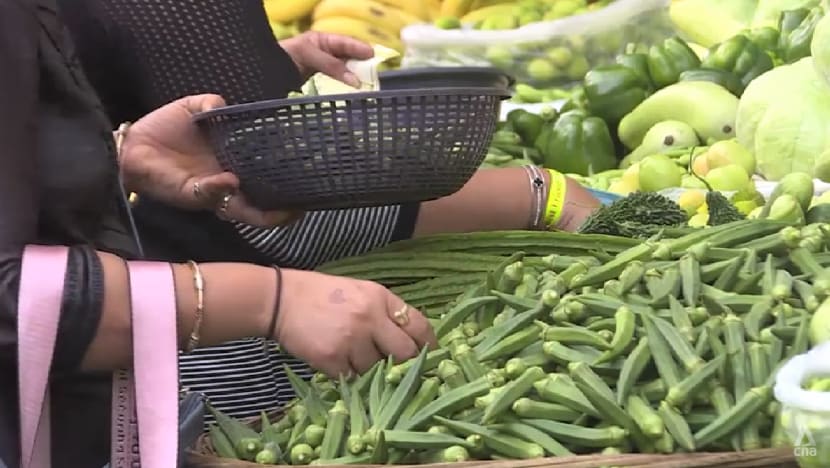Extreme weather patterns wreak havoc on India's crop yields
Climate change is a big threat to the country’s food security - and farmers are worried that weather conditions will only become more unpredictable.

Many parts of India have been affected by extreme weather conditions this year, with heatwaves, drought, and heavy rains wreaking havoc on crop production. (Photo: CNA screengrab)
MAHARASHTRA, India: Farmer Santosh Borade grows various produce from tomato to cauliflower, but exceptionally heavy rains in recent weeks have destroyed many of his crops.
Torrential rain is a common occurrence during India's monsoon season, which runs annually from June to September.
But Nashik – a farming district in the state of Maharashtra and a few hours by road from Mumbai – recorded unusually high levels of rainfall this year, with unexpected downpours after the typical monsoon period.
“This year it rained a lot, and because of the rain we faced massive losses,” said Mr Borade. “Maharashtra has not seen so much rain in 50 years. I’ve never seen this kind of rain in my life.”
Climate change is one of the biggest threats to India’s food security.
Many parts of the country have been affected by extreme weather conditions this year, with heatwaves, drought and heavy rains wreaking havoc on crop production.
A heatwave in northern India earlier this year, for instance, impacted the production of staples like wheat and rice. This prompted the government’s eventual decision to impose export curbs in a bid to ensure sufficient supplies and to keep a lid on rising prices for locals.
Mr Pushan Sharma, director at analytical firm Crisil, said: “What we've seen is across commodities, they have a negative correlation with the increase in temperature, so the yields have a negative correlation, and the yields are likely to decline.”
RISK TO INDIA’S FOOD SECURITY
Environmental scientists have long warned of severe consequences if global temperatures rise more than 2 degrees Celsius above pre-industrial levels.
In agricultural terms, for each 1 degree Celsius increase globally, grain yields fall by 5 per cent.
This is a risk to food security in India, which is set to overtake China to become the world's most populous country next year with 1.4 billion people.
And India is still facing malnutrition problems.
The International Food Policy Research Institute forecasts that some 90 million people in the country will be at risk of hunger by 2030. That's 23 per cent higher than what the figure would have been, were it not for climate change.
Farmers are concerned that weather conditions will only become more unpredictable.
Farmer Jagannath Gaykar said extreme weather patterns this year have more than halved his crop yields.
“It rained so much this year and production has reduced,” he added. “The (heat from the) sun is so strong in April and May (now). That damages the crops, and even the cold afterwards is too much to handle. The climate has changed completely.”
India aims to achieve its net zero target by 2070. But beyond steps to reduce carbon emissions, analysts said the country has to ramp up its agricultural output to ensure its food security.
To do this, India needs to increase its use of farm equipment, hybrid seeds and fertilisers, which are all lagging behind other countries.
TECH TO BOOST PRODUCTIVITY
Some farmers are tapping technology to help boost productivity. These include smartphone applications which provide interactive guidance from experts and weather forecast information.
But analysts said the challenges faced by farmers have to be addressed on a bigger scale.
“There is significant headroom to increase the yield. And I believe that that's the way forward,” said Mr Pushan, the analyst. “Climate change is something that is here to stay.
“And we need to find out ways we can combat them, to not just serve our needs, but ensure that we can serve the needs of our partners we are supplying these commodities to globally.”
















